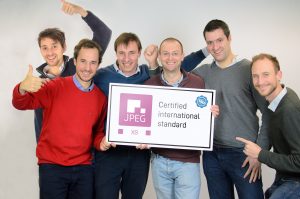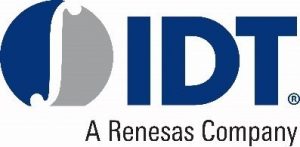
EDACafe Editorial Roberto Frazzoli
Roberto Frazzoli is a contributing editor to EDACafe. His interests as a technology journalist focus on the semiconductor ecosystem in all its aspects. Roberto started covering electronics in 1987. His weekly contribution to EDACafe started in early 2019. Major stories this week: AI startups, video technologies, reliability insights, acquisitionsApril 12th, 2019 by Roberto Frazzoli
Over the last couple of weeks, several announcements confirmed the ever-growing interest for artificial intelligence. In the same timeframe, other significant news concerned video technologies, new solutions to deal with reliability issues, and acquisitions of semiconductors companies. Intel investing in AI startups Intel is obviously very active in the AI arena, with initiatives focusing on specialized companies and startups. Among them a collaboration with H2O.ai, a company that has created an open source machine learning platform. The first phase of this project focuses on accelerating H2O.ai technologies on Intel platforms, including the new second generation Intel Xeon Scalable processors. According to H2O, using the latest Intel platform has enabled to handle much larger data sets and drastically reduce training time, while allowing server consolidations. And four AI startups recently joined the Intel Capital portfolio: among them, SambaNova Systems (Palo Alto, CA) and Untether AI (Toronto, Canada). The Intel Capital investment in SambaNova is part of a $150M Series B funding round with additional participation from GV (formerly Google Ventures) and others. Founded by two Stanford professors, SambaNova is building an advanced systems platform to run artificial intelligence applications from the datacenter to the edge, with a ‘software-defined hardware’ approach that allows to leverage constantly-evolving software advances in real time, to further maximize hardware performance. The Canadian startup Untether AI received $13 million in Series A funding from Intel Capital and other investors. It is developing a new AI chip for neural net inference based on a ‘near-memory’ design, that eliminates the data movement bottleneck that costs energy and performance in traditional architectures. According to the company, the new architecture gets data to the processors at 2.5 petabits per second.  Leaders from the 14 companies joining the Intel Capital portfolio pose with Intel Capital President Wendell Brooks. (Credit: Intel Corporation) Chinese AI companies attracting attention The other two AI startups on which Intel Capital has invested are both Chinese: Cloudpick Limited (Shanghai, China), a smart retail technology provider; and Zhuhai EEasy Technology (Zhuhai, China), an AI system-on-chip design house and total solution provider. Another Chinese AI company making news recently is FABU Technology, that announced its coarse-grained Deep Learning Accelerator (DLA), a low power custom module that improves the performance of object recognition and image classification in convolutional neural networks. The DLA can be customized for a broad range of models, including the computation of high data volumes from cameras and sensors to enable high-performance object detection for self-driving vehicles. According to FABU, this DLA design presents high inference performance comparable to high-end GPUs, but with about 40x power consumption reduction. The FABU DLA test chip is manufactured with TSMC 28nm CMOS technology. The proposed DLA 2.0 is projected to perform object detection at more than 40 frames per second for 2MP (1920 x 1080) images. The power consumption of the entire SoC is expected to be 5 W. Broadcast video gets new compression algorithms and new video-over-IP solutions Artificial intelligence is in the spotlight, but other applications are quickly evolving as well. Among them is broadcast video, with innovations such as High Dynamic Range and ever-increasing definition. Due in part to the recent NAB show, several announcements over the past couple of weeks have involved new FPGA-based solutions for compressing video and for transporting it over IP networks. The Belgian company intoPIX, who co-develop the new video compression standard JPEG-XS, announced the release of their first JPEG-XS IP-cores for Intel and Xilinx FPGAs, and demonstrated a SDK that will accelerate JPEG-XS encoding and decoding for live production. The new SDK will offer sub-frame latency and bandwidth ranging from 125Mbps to 400Mbps for HD, from 500Mbps to 1.6Gps for 4K, and from 1Gbps to 4Gbps for 8K. According to the company, JPEG-XS is set to become the go-to solution for broadcast professionals that want to create bandwidth-efficient production workflows over IP networks. Other video-related news include Nextera Video and Adeas announcing that their ST2110 Video Over IP FPGA cores now support NMOS (Networked Media Open Specifications) IS-08 Audio Channel Mapping; V-Nova and NGCodec presenting their combined FPGA-based encoding solution, which claims great UHD video quality and encoding efficiency resulting in up to 50x cost savings when compared to traditional CPU software options; and Omnitek, a FPGA IP vendor, offering a 3D LUT for color space conversions and conversion between nonlinear gamuts, for applications such as ITU-R Recommendations 709/2020 and SDR/HDR conversions, chroma keying and artistic effects. Reliability insights from Israel Reliability is set to become the number one requirement in future autonomous driving cars. In the meantime, two recent announcements suggest measures that can be taken on this front today – at chip level and system level respectively. ProteanTecs, an Israeli start-up company that invented an innovative solution for the prediction of failures in electronics, announced that it has completed a series B financing round of $35 million. The company developed a solution called Universal Chip Telemetry, a new language of inferred measurements for chip health and performance monitoring. The ProteanTecs solution uses a cloud-based platform combining data derived from proprietary agents embedded in chips, with machine learning and data analytics. This significantly improves chip and system production quality, while tracking operational reliability and alerting on faults before they become failures. A system-level proposal comes from the components distributor Digi-Key Electronics and the Israeli company BQR Reliability Engineering: the two partners presented a collaboration that will enable Digi-Key customers to easily compare different BOMs (Bill of Materials) from the point of view of MTBF (Mean Time Between Failures). The BQR's software solution, available in SaaS mode, makes sure the design meets the reliability goal early in the design process before manufacturing. With Pareto reports showing the most unreliable components, it will ensure the selection of components that balance reliability and cost. It will also provide measures for warranty analysis, design reviews, tenders, product datasheets, and design trade-offs. Industrial and automotive applications spur acquisitions Also over the last couple of weeks, two important acquisitions took place: Renesas acquired Integrated Device Technology (a historical Silicon Valley company, founded in 1980), and ON Semiconductor reached an agreement to acquire Quantenna. In both cases, one of the major goals of the acquisitions is a stronger offering in industrial and automotive markets. Renesas will now deliver a range of embedded solutions combining its microcontrollers, system-on-chips and power management ICs, with IDT’s RF, timing, memory interface, real-time interconnect, optical interconnect, wireless power and smart sensors. ON Semiconductor and Quantenna aim at low-power connectivity applications by combining ON’s expertise in highly efficient power management with Quantenna’s Wi-Fi technologies and software expertise. Category: EDACafe Editorial |
|
|
|||||
|
|
|||||
|
|||||









